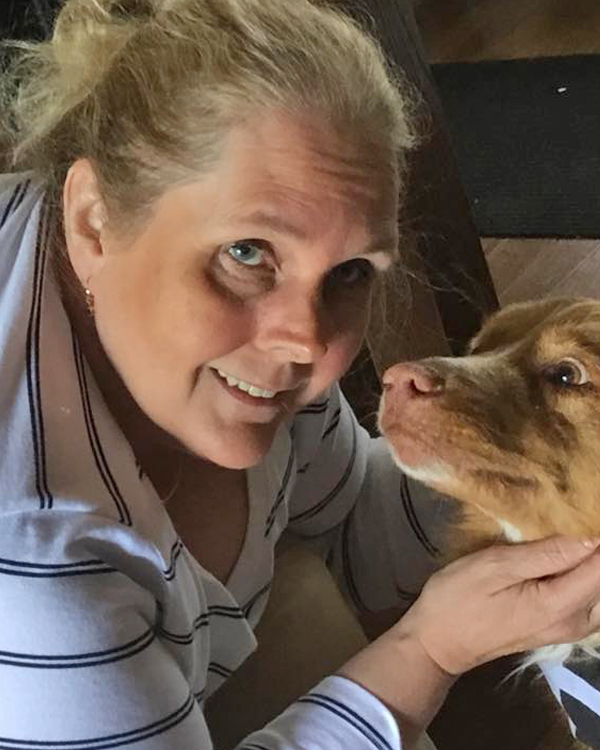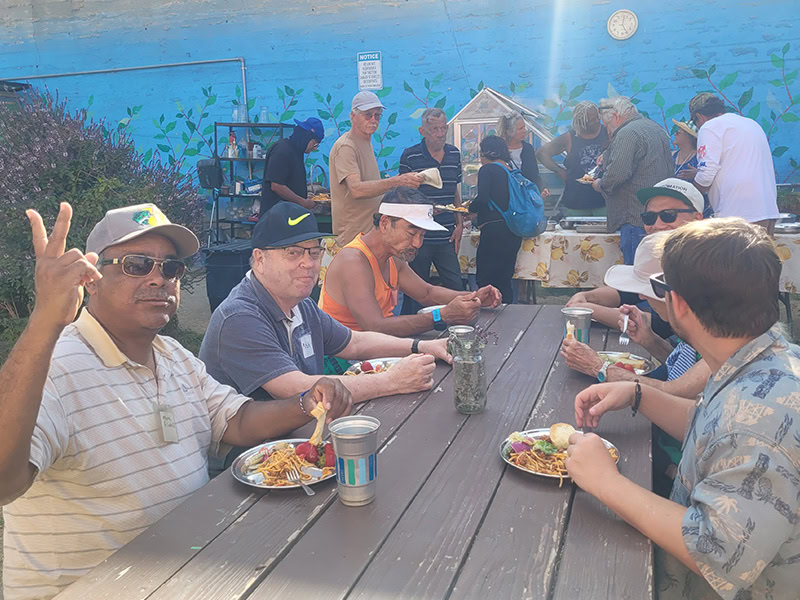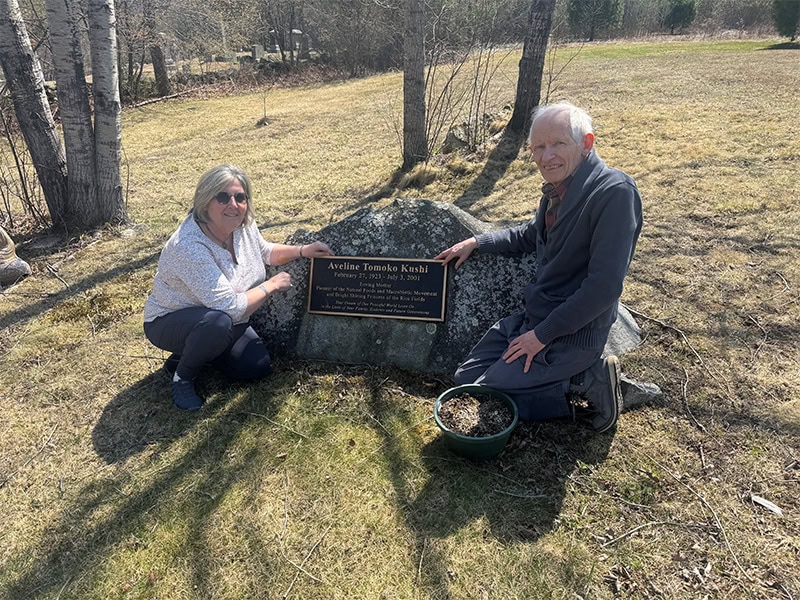By Roxanne Grace Sperry
Swedenborg wrote about Enoch and the people of Enoch as knowing and being in relationship with God through intuition, symbols, and possibly instinct. The Enoch were a people who did not rely on doctrine yet wrote the stories to be told for future generations to preserve our relationship with God. This was necessary as heavenly intuitive thoughts faded away and the understanding of symbols was lost. Although the Ancient Word exists in pure form in heaven these ancient doctrines have been changed over time here on Earth.
For some, there is a strong desire to go home to the Most Ancient Church. But where will you go? In ancient Egypt, the heart was considered the seed of life where the soul, emotion, reason, and the seat of intelligence reside. This cardiocentric hypothesis was not limited to ancient Egypt and travels back to a prehistoric cave painting where a heart is depicted in a woolly mammoth. It was not until 550 B.C. when Pythagoras developed the cephalocentric hypothesis that the soul resides in the brain. Interestingly, the Bible does not reference the brain once but does reference the heart eight hundred and twenty-six times according to Strong’s Exhaustive Concordance of the Bible.
Do we live in a world where the cardiocentric hypothesis has been subjugated to the cephalocentric hypothesis? Perhaps the Most Ancient Church is waiting to be excavated like an ancient city buried deep within our heart. Will we find our way home by going on an incredible journey from the brain to the heart? Who and what will we encounter on the pilgrimage of “The Incredible Journey of Goin’ Home to the Most Ancient Church”?
Set against the nostalgic and hauntingly beautiful melody of the Dvorak’s “New World Symphony,” “Largo” are the lyrics to “Goin’ Home” written in 1922 by Dvorak’s student William Arms Fischer.
Goin’ home, goin’ home, I’m a goin’ home;
Quiet-like, some still day, I’m jes’ goin’ home.
It’s not far, jes’ close by,
Through an open door;
Work all done, care laid by,
Goin’ to fear no more.
Mother’s there ‘spectin’ me,
Father’s waitin’ too;
Lots o’ folk gather’d there,
All the friends I knew,
All the friends I knew.
Home, I’m goin’ home!
Nothin lost, all’s gain,
No more fret nor pain,
No more stumblin’ on the way,
No more longin’ for the day,
Goin’ to roam no more!
Mornin’ star lights the way,
Res’less dream all done;
Shadows gone, break o’ day,
Real life jes’ begun.
There’s no break, there’s no end,
Jes’ a livin’ on;
Wide awake, with a smile
Goin’ on and on.
Goin’ home, goin’ home, I’m jes’ goin’ home,
Goin’ home, goin’ home, goin’ home!
This song has become a hymn often sung at funerals. Echoing throughout this hymn is a knowing: a confident expectation for the joy of goin’ home contrasted against a life already lived that was not an easy life. An earthly life filled with work, fear, fret, and pain. This life of uncertainty was a life without a clear direction, “stumblin’ on the way.” The only thing certain about this life was life itself. “There’s no break, there’s no end, Jes’a livin’ on.”
Goin’ home is a longing among sentient beings. Returning to the place of origin is a spiritual journey, something more than a desire for a deeper understanding and acceptance of the self. Goin’ home is regenerative and a time when “Real life jes’ begun.”
Learning from the Animals
But ask the animals, and they will teach you; the birds of the air, and they will tell you; ask the plants of the earth, and they will teach you; and the fish of the sea will declare to you. Who among all these does not know that the hand of the Lord has done this?In his hand is the life of every living thing and the breath of every human being (Job 12:7–10).
Even within the animal kingdom some must return home to ensure the continued regeneration of their species. This homing instinct is known as natal philopatry (philopatry; the prefix philo from the Greek philos “beloved,” and the Latin patria, which means “homeland”) and is found in Atlantic Puffins, sea turtles, and Pacific Salmon among other species. Let us not forget the countless stories of lost pets finding their way home after being lost. Sheila Burnford’s novel The Incredible Journey is the story of a Bull Terrier, a Siamese cat, and a Labrador Retriever who embark on an arduous three-hundred-mile journey to find their way home for the good of love, to be united with their beloved human guardians. This bond between nonhuman and human was so strong for these animals they were committed to enduring incredible hardship to again be home with their humans; hence “The Incredible Journey.”
As Christians, are we prepared for “The Incredible Journey” of “Goin’ home” to the Most Ancient Church? Like Bodger the old English Bull Terrier, Tao the seal-point Siamese cat with sapphire blue eyes, and Luath a Labrador Retriever with brown eyes and fur of reddish gold, we can go home to the one who loves us. We can go home to our shepherd who waits for us “through an open door.” And like the animals we can find our way home through the awakening of our intuition and instincts. By letting go of empirical proof rooted in the material and entering into the faith of the intangible I suggest we begin “The Incredible Journey of Goin’ Home to the Most Ancient Church.”
For the Good of Love the Sabbath
I never fully understood or appreciated the meaning of the Sabbath until I was graced with reading Abraham Joshua Heschel’s novella The Sabbath. Now I claim the Sabbath as part of my Christian heritage. Like the animals that must return home to their habitats to regenerate the species and to thrive, I must find my way home to my Christian habitat, the Sabbath.
And Jesus said to him, “Foxes have holes, and birds of the air have nests; but the Son of Man has no place to lay his head” (Matthew 8:20).
In this verse, Jesus speaks of habitats that exist in an earthly place. Jesus, the Son of Man, has no place to lay his head. Most bible commentaries interpret this verse as Jesus separating the wheat from the chaff. This verse is a warning to those who may follow Jesus with intentions of gaining wealth and grandeur by being his disciple. A disciple of Jesus will have less than the animals and the birds. They will be impoverished and homeless. But this interpretation is not congruent with Matthew 11:28–30,
Come to me, all you that are weary and are carrying heavy burdens, and I will give you rest. Take my yoke upon you and learn from me; for I am gentle and humble in heart, and you will find rest for your souls. For my yoke is easy, and my burden is light.
The Son of Man, Jesus, has no habitat, no place to lay his head, yet he will give us rest? If God is to provide a habitat for the fox and the birds, then surely he will provide a habitat for The Son of Man. Is Jesus telling us where he is by telling us where he is not? How can Matthew 8:20 and Matthew 11:28–30 provide us with a consistent message? Perhaps the answer lies in the mystery of the Sabbath as it has been revealed to me by Rabbi Abraham Joshua Heschel.
To understand who God is, is to understand who God is not. To understand where God dwells, and where you shall dwell, is to understand where God does not dwell. God cannot be confined to space. “There is no quality that space has in common with the essence of God. There is not enough freedom on the top of a mountain; there is not enough glory in the silence of the sea.” The Most Ancient Church will not be found in a place; she waits to be rediscovered in eternity. She waits longingly for you as a bride waits for her groom. Her veil is made of sunshine and her wedding garment is sewn together out of lace woven from the beauty of nature. Her crown is encrusted with royal gems of wisdom. She carries a bouquet of myrtle plucked from paradise. Her betrothal is the hope she lives in to be united with you on the Seventh Day. The dowry that waits in your union with her is a second soul, a supernal soul, the teaching of heaven’s angels.
The Habitat of God, The Son of Man, Jesus Is Our Dwelling-Places
Do not let your hearts be troubled. Believe in God, believe also in me. In my Father’s house there are many dwelling-places. If it were not so, would I have told you that I go to prepare a place for you?And if I go and prepare a place for you, I will come again and will take you to myself, so that where I am, there you may be also. And you know the way to the place where I am going (John 4:1–4).
I will preface this section by telling you that all of what I am about to say is a humble reiteration of the beautiful and masterful messaging of Rabbi Heschel. Imagine a palace in time to take your first step on your Incredible Journey. You were not made for the Seventh Day. The Seventh Day was made for you. But you are the architect of this palace in time where the Bride of the Most Ancient Church waits for you. The Seventh Day Palace is built on rest not labour. The air is perfumed with joy; neither sadness, nor anger can burden the atmosphere. Only as God can be defined by what and who he is not, the Holy Glory of the Seventh Day can only be experienced through abstinence from all that is tiresome and disheartening. Even grieving must be suspended on the Seventh Day. However, because God’s purpose and the purpose of the Church are to bring life to this world and the world to come, all laws of abstinence must be set aside to save a life, even that of a non-human.
On the Seventh Day, Heaven and Earth kiss and all of creation pulses with the beating heart of the divine. This is the foretaste of the world to come the arrival of “The Most Ancient Church.” For six days we long for and live in anticipation for the Seventh Day. On the sixth day, we will grow anxious and seek perfection in our preparations to enter into the Seventh Day. Our incredible journey into the New Jerusalem of the Most Ancient Church should be done in the spirit of reticence, dignity, awe, and wonder. Do not even try to understand. To seek to understand on the Seventh Day is work, and you must abstain from labour. The angels will be with you and you will know without knowing and you will understand without understanding.
Enter into your journey with all that is your finest. Take with you only your finest thoughts. Dress yourself in your finest garments. Nourish yourself with the finest food. As you enter into eternity, there is only time for the finest. Create the finest environment with the finest beauty. Be prepared to offer the finest hospitality.
Do not neglect to show hospitality to strangers, for by doing that some have entertained angels without knowing it (Hebrews 13:2).
Who and What Will You Encounter on Your Incredible Journey?
Earlier I asked the question; “Who and what will we encounter on the pilgrimage of The Incredible Journey of Goin’ Home to the Most Ancient Church?” Only you will be able to answer this question for it is your journey. But, before you go on your way, a blessing for you, the eternal time traveler.
May the countenance of God shine upon you and cause your heart to overflow with the warmth of divine love.
May the sun shine upon you and enlighten your mind with the wisdom of the ages.
May your Palace in time be filled with knowledge and understanding and built on a rock called intuition and instinct.
May you encounter your unmasked self and see who you really are through the eyes of God.
May your soul find their habitat in the eternal oneness of God.
Godspeed on your Incredible Journey.
Read the full issue of the May 2023 Messenger

Meet Roxanne Sperry
Roxanne Sperry is a member of the Church of the New Jerusalem in Bath, Maine. Her passion is identifying unexpected ministries in unexpected places. These ministries include, “The Roadside Chaplain” rescuing people and finding lost souls on the highways and byways of North America, “Disenfranchised Grief in the Veterinary Clinic, at Home and in the Wild,” and “Harp Thanatology, Beauty as the Healing Balm for the Dying.”



